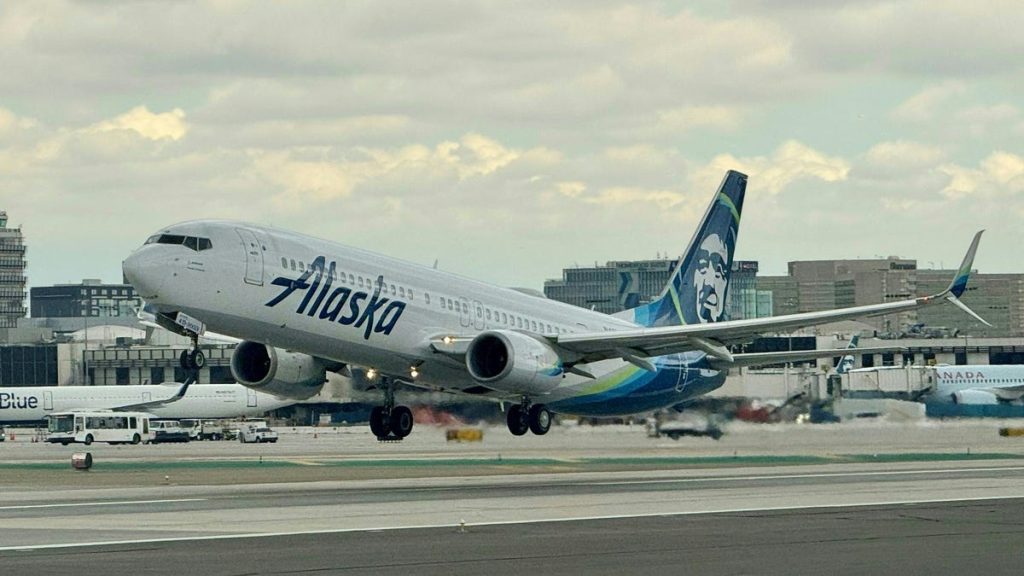In a recent report by the NTSB, it was revealed that bolts were missing during an Alaska Airlines door plug blowout incident involving a Boeing plane. Alaska Air Group has received $61 million in supplier credit memos from Boeing as additional compensation for the grounding of 737 MAX 9 jets, with $162 million in cash compensation received in the first quarter. The incident, which occurred in January, saw a mid-air cabin panel blowout that led to the grounding of 171 aircraft by the U.S. Federal Aviation Administration for approximately three weeks. The credit memos provided by Boeing can be used for future purchases by Alaska Airlines, as stated in their quarterly report.
As a result of the incident involving the missing bolts, Boeing is compensating United Airlines, another prominent customer, for the financial damages incurred due to the grounding of the 737 MAX 9 aircraft. United Airlines had to temporarily suspend service on all 79 of its affected aircraft, resulting in a significant $200 million hit in the first quarter. This highlights the impact that such incidents can have on both airlines and manufacturers, emphasizing the importance of ensuring the safety and integrity of aircraft components.
The grounding of the 737 MAX 9 aircraft following the blowout incident has raised concerns about the safety and maintenance procedures surrounding these planes. The NTSB report shedding light on the missing bolts further underscores the need for thorough inspections and maintenance checks to prevent similar incidents from occurring in the future. Airlines and manufacturers must work together to ensure that safety is prioritized and that potential risks are addressed promptly and effectively.
The compensation provided by Boeing to both Alaska Airlines and United Airlines reflects the financial toll that these incidents can take on airlines, as well as the responsibility of manufacturers to rectify any issues that may arise with their aircraft. The ability to use credit memos for future purchases allows Alaska Airlines to mitigate some of the financial impact of the grounding of the 737 MAX 9 jets. Similarly, the compensation received by United Airlines shows the commitment of Boeing to support its customers and address any challenges that may arise.
Moving forward, it will be essential for both Boeing and the airlines operating their aircraft to implement measures that enhance safety and prevent similar incidents from occurring. The collaboration between manufacturers, airlines, and regulatory agencies will be crucial in ensuring that the highest safety standards are upheld in the aviation industry. The lessons learned from incidents like the Boeing plane blowout will inform future maintenance practices and inspections, helping to prevent similar issues and uphold the integrity of aircraft components.
In conclusion, the NTSB report revealing missing bolts in a Boeing plane during a recent blowout incident highlights the importance of thorough inspections and maintenance checks to prevent such incidents in the future. The compensation provided by Boeing to Alaska Airlines and United Airlines underscores the financial impacts of these events and the need for manufacturers to support their customers in addressing challenges. As the aviation industry continues to prioritize safety and maintenance, collaboration between all stakeholders will be essential in upholding the highest standards of aircraft integrity and passenger safety.


